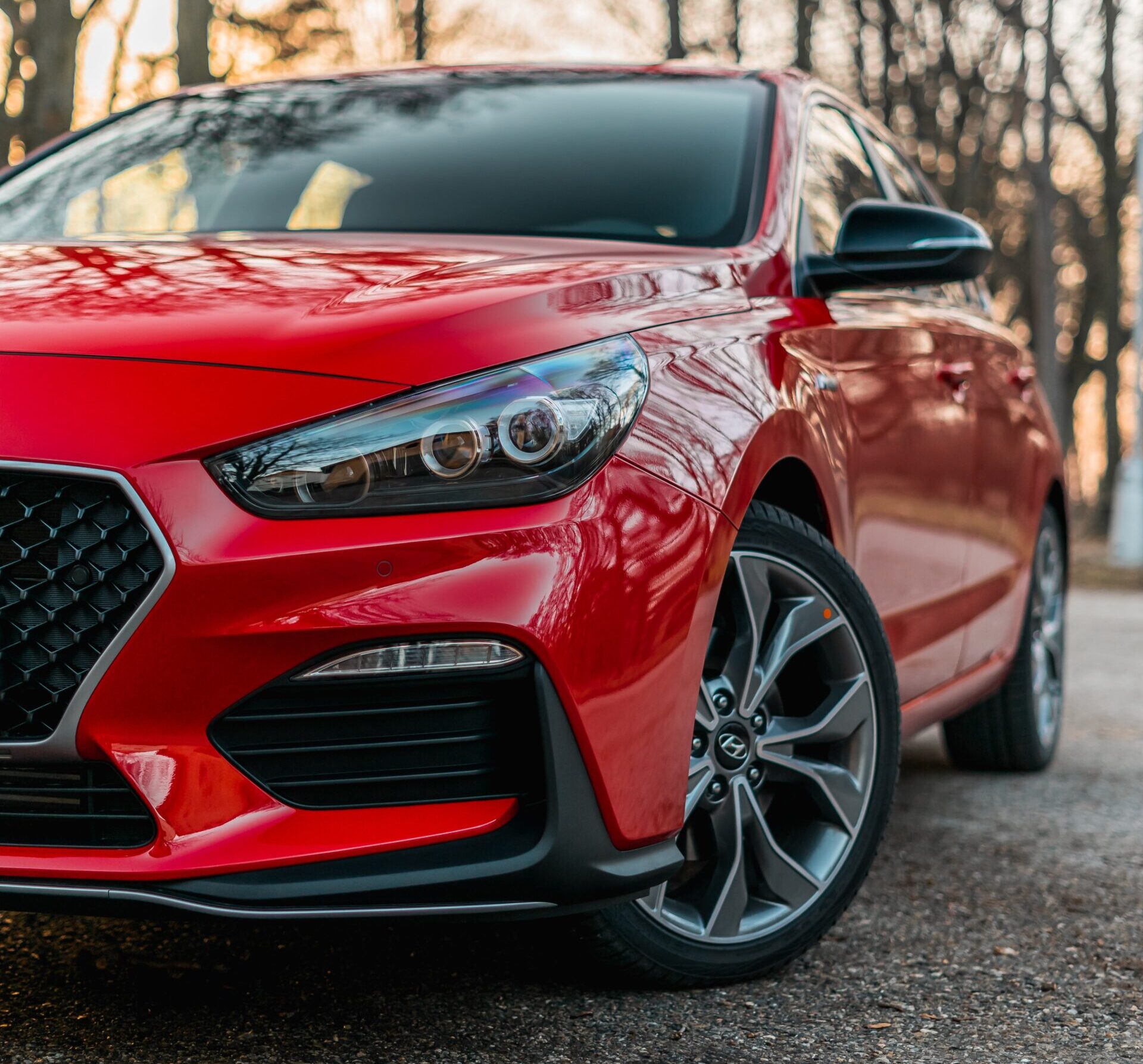Support our educational content for free when you purchase through links on our site. Learn more
Unlocking the Secrets of the Best Car Lease Calculator: 10 Must-Know Tips for 2024! 🚗✨

Have you ever felt overwhelmed by the thought of leasing a car? You’re not alone! Just last summer, I found myself standing in a dealership, staring at shiny new models, but completely lost when it came to the numbers. That’s when I discovered the magic of the car lease calculator. It transformed my experience from confusion to clarity, allowing me to confidently negotiate a deal that suited my budget.
In this article, we’ll dive deep into the world of car lease calculators, uncovering 10 essential insights that will empower you to make informed decisions. From understanding key terms to knowing how to negotiate your lease, we’ve got you covered. Plus, you’ll learn about the 90% lease rule—a game-changing guideline that could save you money! So, buckle up, because we’re about to take a ride through the ins and outs of leasing!
Key Takeaways
- Car Lease Calculators Simplified: These tools help estimate your monthly payments based on key factors like MSRP, down payment, and interest rates.
- Understanding Key Terms: Familiarize yourself with terms like MSRP, money factor, and residual value to negotiate better deals.
- The 90% Lease Rule: This guideline can help you determine if a lease deal is financially sound.
- Negotiate with Confidence: You can and should negotiate the price of the vehicle you’re leasing to get the best deal possible.
- Explore Top Calculators: Utilize reliable online calculators from platforms like Bankrate and Edmunds to compare lease offers.
Ready to start your leasing journey? 👉 Shop Subaru models at Rafferty Subaru and discover amazing lease deals today! 🚙💨
Table of Contents
- Quick Tips and Facts About Car Lease Calculators
- Understanding Car Lease Calculators: A Comprehensive Overview
- What To Consider When Using a Car Lease Calculator
- Key Factors That Make a Great Lease Deal
- How Much Should You Pay for a Car Lease? Understanding MSRP
- The 90% Lease Rule: What You Need to Know
- Understanding Money Factors: What’s Considered Good?
- Can You Negotiate Your Leased Vehicle Price? Here’s the Scoop!
- Top Car Lease Calculators You Should Try
- Rafferty Subaru: Exceptional Lease Deals on a Variety of Subarus!
- Drive Home in a New Subaru from Rafferty!
- Conclusion
- Recommended Links
- FAQ
- Reference Links
Quick Tips and Facts About Car Lease Calculators
🚗💰 Are you considering leasing a car? 🤔 Before making a decision, it’s essential to understand the ins and outs of car lease calculators. Here are some quick tips and facts to get you started:
- What is a car lease calculator? 🤔 A car lease calculator is an online tool that helps you estimate the cost of a car lease based on factors like MSRP, negotiated price, down payment, sales tax, lease length, interest rate, and residual value.
- How does a car lease calculator work? 🤖 A car lease calculator uses a complex algorithm to calculate the total monthly payment, capitalized cost, lease price, residual value, depreciation fee, and lease fee.
- What are the benefits of using a car lease calculator? 📈 Using a car lease calculator can help you:
- Compare different lease deals and find the best one for your needs.
- Understand the total cost of the lease, including taxes and fees.
- Make informed decisions about your lease.
- Where can I find a car lease calculator? 📊 You can find car lease calculators online, either on the website of a car manufacturer or on a third-party website like Bankrate.
Understanding Car Lease Calculators: A Comprehensive Overview
📊 A car lease calculator is a powerful tool that can help you make informed decisions about your car lease. But how does it work? Let’s take a closer look:
- Key components of a car lease calculator: 🤖 A car lease calculator typically includes the following components:
- MSRP (Manufacturer’s Suggested Retail Price)
- Negotiated price
- Down payment
- Sales tax
- Lease length
- Interest rate
- Residual value
- How to use a car lease calculator: 📊 To use a car lease calculator, simply enter the required information and click “calculate.” The calculator will then provide you with an estimate of the total monthly payment and other costs associated with the lease.
What To Consider When Using a Car Lease Calculator
📝 When using a car lease calculator, there are several things to consider:
- Accuracy of the calculator: 🤔 Make sure the calculator is accurate and up-to-date.
- Assumptions made by the calculator: 📊 Understand the assumptions made by the calculator, such as the interest rate and residual value.
- Fees and taxes: 📊 Consider all fees and taxes associated with the lease, including sales tax and registration fees.
Key Factors That Make a Great Lease Deal
📈 A great lease deal can save you money and provide you with a car that meets your needs. Here are some key factors to consider:
- Low monthly payments: 💸 Look for a lease deal with low monthly payments.
- Low down payment: 💸 A low down payment can help reduce your upfront costs.
- Flexible lease terms: 📆 Consider a lease deal with flexible terms, such as a longer or shorter lease period.
- Good residual value: 📈 A car with a good residual value can help reduce your monthly payments.
How Much Should You Pay for a Car Lease? Understanding MSRP
📊 When leasing a car, it’s essential to understand the MSRP (Manufacturer’s Suggested Retail Price). Here’s what you need to know:
- What is MSRP? 🤔 MSRP is the base price of a vehicle before negotiation.
- How to negotiate the MSRP: 📊 Negotiate the MSRP to get the best possible price.
- Understanding the MSRP and its impact on your lease: 📊 The MSRP can impact your lease payments and overall cost.
The 90% Lease Rule: What You Need to Know
📊 The 90% lease rule is a guideline that can help you determine whether a lease deal is good or not. Here’s what you need to know:
- What is the 90% lease rule? 🤔 The 90% lease rule states that the total of the residual value and the net present value of lease payments should be equal to 90% or less of the vehicle’s fair market value.
- How to calculate the 90% lease rule: 📊 Calculate the total of the residual value and the net present value of lease payments and compare it to 90% of the vehicle’s fair market value.
Understanding Money Factors: What’s Considered Good?
📊 A money factor is a key component of a car lease calculator. Here’s what you need to know:
- What is a money factor? 🤔 A money factor is a number that represents the interest rate on a lease.
- How to calculate the money factor: 📊 Calculate the money factor by multiplying the lease factor by 2,400.
- What is considered a good money factor? 📊 A good money factor is typically less than 0.001 (2.4%).
Can You Negotiate The Price Of A Leased Vehicle? Here’s the Scoop!
📊 Negotiating the price of a leased vehicle can be tricky, but it’s not impossible. Here’s what you need to know:
- Can you negotiate the price of a leased vehicle? 🤔 Yes, you can negotiate the price of a leased vehicle.
- How to negotiate the price of a leased vehicle: 📊 Negotiate the MSRP and other costs associated with the lease.
Top Car Lease Calculators You Should Try
📊 There are many car lease calculators available online. Here are some of the top ones to try:
- Bankrate Car Lease Calculator: 📊 A comprehensive calculator that provides an estimate of the total monthly payment and other costs associated with the lease.
- Edmunds Car Lease Calculator: 📊 A calculator that provides an estimate of the total monthly payment and other costs associated with the lease.
Rafferty Subaru: Exceptional Lease Deals On A Variety Of Subarus!
🚗 Rafferty Subaru offers exceptional lease deals on a variety of Subaru models. Here’s what you need to know:
- What Subaru models are available for lease? 🤔 Rafferty Subaru offers lease deals on models such as the Outback, Crosstrek, Forester, and Legacy.
- What are the benefits of leasing a Subaru? 📊 Leasing a Subaru can provide you with a car that meets your needs and budget.
Drive Home In A New Subaru From Rafferty!
🚗 Are you ready to drive home in a new Subaru? Rafferty Subaru offers a wide range of Subaru models for lease. Here’s what you need to know:
- What Subaru models are available for lease? 🤔 Rafferty Subaru offers lease deals on models such as the Outback, Crosstrek, Forester, and Legacy.
- What are the benefits of leasing a Subaru? 📊 Leasing a Subaru can provide you with a car that meets your needs and budget.
Recommended Links
📊 Here are some recommended links to help you learn more about car lease calculators and leasing a car:
FAQ
=====
🤔 Here are some frequently asked questions about car lease calculators and leasing a car:
- What is a car lease calculator? 🤔 A car lease calculator is an online tool that helps you estimate the cost of a car lease based on factors like MSRP, negotiated price, down payment, sales tax, lease length, interest rate, and residual value.
- How does a car lease calculator work? 🤖 A car lease calculator uses a complex algorithm to calculate the total monthly payment, capitalized cost, lease price, residual value, depreciation fee, and lease fee.
Reference Links
📊 Here are some reference links to help you learn more about car lease calculators and leasing a car:
- Bankrate Car Lease Calculator
- Edmunds Car Lease Guide
- Rafferty Subaru
- Subaru Official Site
- NADA Guides on Leasing
- Experian on Car Leasing
Feel free to explore these resources to deepen your understanding of car leasing and get the best deals possible! Happy leasing! 🚗💨
Conclusion
🚗 In wrapping up our exploration of car lease calculators, it’s clear that these tools are invaluable for anyone considering leasing a vehicle. They help demystify the leasing process, allowing you to make informed decisions based on your financial situation and preferences.
Positives:
- User-Friendly: Most calculators are straightforward and easy to navigate, making them accessible for everyone.
- Comprehensive Estimates: They provide detailed breakdowns of costs, including monthly payments, residual values, and potential taxes.
- Comparison Tool: You can easily compare different lease deals to find the best option for your needs.
Negatives:
- Variable Accuracy: Not all calculators account for every fee or tax, which could lead to discrepancies in your final lease cost.
- Dependence on Input: The accuracy of the output heavily relies on the information you provide; incorrect data can skew results.
In conclusion, we confidently recommend using a car lease calculator as a starting point in your leasing journey. They empower you to negotiate better deals and ensure you’re getting the most bang for your buck! If you’re ready to start leasing, don’t forget to check out Rafferty Subaru for some great deals on their lineup! 🚙✨
Recommended Links
👉 Shop Subaru Models on:
- Rafferty Subaru: Rafferty Subaru Official Website
- Subaru Outback: Subaru Outback Search
- Subaru Crosstrek: Subaru Crosstrek Search
- Subaru Forester: Subaru Forester Search
- Subaru Legacy: Subaru Legacy Search
FAQ
What is the 1% rule in car leasing?
The 1% rule in car leasing suggests that your monthly lease payment should not exceed 1% of the vehicle’s MSRP (Manufacturer’s Suggested Retail Price). For example, if you are leasing a car with an MSRP of $40,000, your monthly payment should ideally be $400 or less. This rule serves as a quick benchmark to evaluate whether a lease deal is financially sound.
How much is a lease on a $45,000 car monthly payment?
The monthly payment for a lease on a $45,000 car can vary based on several factors, including the lease term, interest rate (money factor), residual value, and any down payment. However, using the 1% rule, a good estimate would be around $450 per month. To get a more precise figure, it’s best to use a car lease calculator that takes into account all relevant variables.
Is it financially smart to lease a car?
Leasing a car can be financially smart for many people, especially those who prefer driving new vehicles every few years. Pros include lower monthly payments, lower upfront costs, and warranty coverage throughout the lease term. However, it may not be the best option for those who drive a lot (due to mileage limits) or want long-term ownership. It ultimately depends on your lifestyle and financial situation.
How do you calculate a car lease?
Calculating a car lease involves several steps:
- Determine the MSRP of the vehicle.
- Negotiate the selling price (capitalized cost).
- Estimate the residual value (the car’s value at the end of the lease).
- Calculate the depreciation fee: (Capitalized Cost – Residual Value) / Lease Term.
- Determine the money factor (interest rate).
- Add any fees (acquisition, security deposit, etc.) to the total.
- Calculate the monthly payment by adding the depreciation fee and the finance charge (Money Factor x (Capitalized Cost + Residual Value)).
Using a lease calculator can simplify this process significantly!
Reference Links
- Bankrate Car Lease Calculator
- Edmunds Car Lease Guide
- Rafferty Subaru
- Subaru Official Site
- NADA Guides on Leasing
- Experian on Car Leasing
Feel free to explore these resources to deepen your understanding of car leasing and get the best deals possible! Happy leasing! 🚗💨



